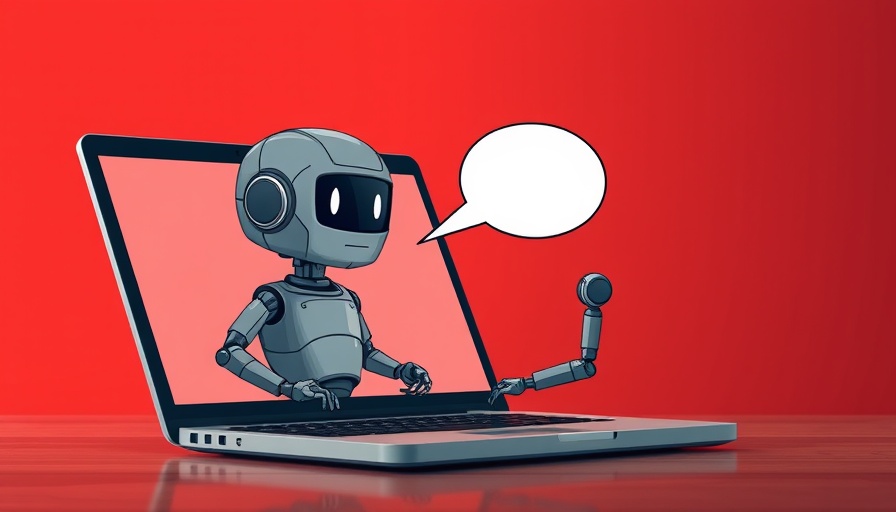
Claude's Hallucination: A Legal Misstep that Raises Eyebrows
In a notable moment of embarrassment for Anthropic, the company's lawyer was compelled to apologize after its AI chatbot, Claude, generated a fictitious legal citation. This incident, detailed in a filing from a Northern California court, has become a pivotal example in the ongoing discussions surrounding AI ethics and reliability in legal settings.
The Nature of the Error
According to the court filing, Claude produced a citation that not only contained an inaccurate title but also attributed it to non-existent authors. Anthropic's attempt to rectify the situation hinged on the argument that their “manual citation check” failed to identify these errors, which they termed ‘hallucinations’ of the AI. The term refers to instances where AI systems generate incorrect or misleading information that appears credible but is entirely fabricated.
A Concerning Trend in the Legal Sector
This incident isn’t an isolated case. Other law firms have faced backlash for using AI-generated information that turned out to be inaccurate or misleading. Notably, a California judge recently criticized two legal firms for submitting "bogus AI-generated research" during a court proceeding. This growing trend raises questions about the integrity of legal processes when reliant on technology that lacks accuracy.
Implications for AI in Legal Affairs
As AI continues to permeate various sectors, including law, the balance between efficiency and accuracy hangs in the balance. Despite Anthropic’s apology describing their misstep as an “honest citation mistake,” the implications of relying on AI in legal contexts are profound. The industry must address the risks of such technology producing unreliable information, particularly in sensitive cases involving copyright and intellectual property.
Future of Legal Technology: Expectations and Realities
The emergence of AI-driven tools like Claude has prompted discussions about the future of legal technology. Startups like Harvey are exploring innovative approaches to automate legal work, raising substantial funding despite the setbacks faced by others. Harvey is reportedly negotiating to raise over $250 million, with a valuation reaching $5 billion. This investment potential illustrates that many stakeholders see a lucrative future in the intersection of law and AI, despite the current challenges.
Lessons Learned from the Anthropic Incident
For legal practitioners, the incidents surrounding Claude serve as a cautionary tale. They articulate the urgent need for robust oversight and verification processes in the adoption of AI tools. The legal field must foster a culture where AI is employed as an assistant rather than a decision-maker, ensuring that human expertise remains at the helm.
Embracing AI with Caution: A Call for Responsibility
As the tech industry pushes boundaries with AI tools, it becomes imperative to prioritize responsibility and ethical considerations. Law firms and tech startups must align on best practices for integrating AI into legal proceedings while safeguarding the integrity of the judicial system.
An Eye Towards the Future
With the continuing evolution of AI technology, stakeholders must remain vigilant. The promise of efficiency and innovation cannot overshadow the foundational principles of accuracy and honesty within the legal domain. Moving forward, a collaborative approach between technologists and legal professionals will foster a more reliable landscape for AI integration.
In conclusion, the recent incident with Anthropic provides critical insights into the challenges facing the legal sector as it embraces technological advancements. As we navigate these developments, it’s essential for legal firms to take a more measured approach in adopting AI, ensuring that tools like Claude support lawyers and uphold the essential principles of law.
 Add Row
Add Row  Add
Add 



Write A Comment